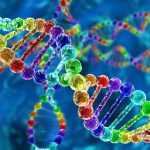Gene Testing

Gene Testing
The most accurate and definitive diagnostic test for Spinal Muscular Atrophy (SMA) is a genetic test. This test provides precise information about the presence or absence of the specific genetic mutation associated with SMA. It is conducted using a sample of the patient’s blood, which contains DNA that can be analyzed to detect any deletions or mutations in the SMN1 gene.
SMA is caused by a deletion or mutation in the SMN1 gene, which leads to a deficiency of the survival motor neuron (SMN) protein. This deficiency results in the progressive degeneration and loss of motor neurons, causing muscle weakness and atrophy.
Genetic testing for SMA involves examining the patient’s DNA for the presence of the SMN1 gene deletion or mutation. This can be done using techniques such as polymerase chain reaction (PCR), multiplex ligation-dependent probe amplification (MLPA), or next-generation sequencing (NGS). These methods accurately detect genetic abnormalities in the SMN1 gene.
The genetic test for SMA provides several advantages. Firstly, it offers a definitive diagnosis, enabling early intervention and appropriate management of the condition. It can also help determine the specific subtype and severity of SMA, as different SMN1 gene mutations are associated with distinct clinical presentations. Moreover, genetic testing can identify carriers of SMA within families, facilitating genetic counseling and family planning decisions.
It is important to note that genetic testing for SMA should be conducted in a qualified laboratory specializing in genetic diagnostics to ensure accurate and valid results. Genetic counselors or healthcare professionals experienced in genetic testing can assist in interpreting the results and provide appropriate guidance and support.
In summary, the genetic test for SMA is the most accurate and reliable diagnostic method available. It involves analyzing the patient’s DNA from a blood sample to detect deletions or mutations in the SMN1 gene, leading to a definitive diagnosis of SMA and assisting in determining the subtype and severity of the condition. This test plays a crucial role in guiding management strategies, genetic counseling, and family planning decisions for individuals affected by SMA
